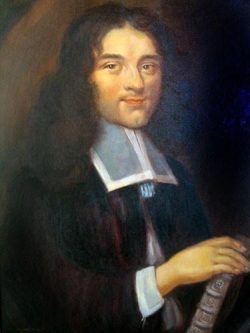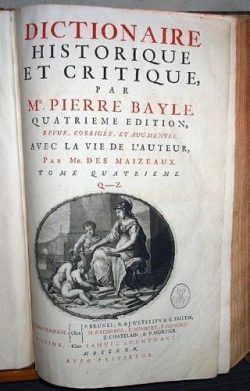Pierre Bayle (1647-1706)
Pierre Bayle can be seen as a forerunner of the Age of Enlightenment because the concept of tolerance was of great importance to him and, a true scholar, he specialized in historical criticism.
He was a teacher and a man of letters
Pierre Bayle, whose father was a pastor, was born in Carla in the county of Foix (Ariège).
He converted to Catholicism when he was at the Jesuit college of Toulouse.
In 1670, having obtained his diploma of Bachelor of Arts, he left Toulouse and abjured Catholicism. As he was considered to be a heretic by the catholic church, he had to leave the country, so he fled to Geneva, where he started studying theology.
This is how Pierre Bayle described his return to Calvinism (told in the third person).
« He was very mistrusting of the exorbitant worship of « Creatures » because his study of philosophy enabled him to understand that the credibility of the theory of transubstantiation was non-existent and he realised that the objections he had previously were largely dictated by Sophism. When he analyzed the two religions anew, he found the true light again which had been hidden from view and decided to follow it once more, caring nothing for the thousands of material advantages he would have to do without, nor for the thousand troubles he knew he would incur in choosing this, the true belief ».
In 1675, he was a private tutor to several reformed families in Rouen and Paris, then he succeeded in the competitive exam to become Professor of philosophy in the reformed Academy of Sedan.
When this Academy was abolished in 1681, he fled to Rotterdam in the United Provinces, where he taught philosophy and history in the Ecole Illustre until 1693.
The Huguenot Refuge in the United Provinces was held in great esteem and French became an important language in European literary circles
At this time, the United Provinces were a sovereign state which had a highly successful economy and a rich cultural life. Much French was spoken, due to the arrival of many Walloons, who had fled from the south of the Low Countries, which were cruelly enthralled by Spain.
The well known Dutch printers ran a thriving business – as a result there was a great deal of literary activity in Holland. Their newspapers and gazettes were circulated throughout Europe. Pierre Bayle was the main editor of one of the most famous of the literary periodicals : News from the Republic of Letters, from 1684 to 1687 – this put him in touch with scholars all over Europe.
Pierre Bayle published a number of major works in Rotterdam
Here are some titles :
- Various reflexions on the comet, 1682,
- A description of all-catholic France in the reign of Louis-the-Great, 1686,
- A philosophical commentary on the words of Jesus Christ : « Make them come in », 1686,
- A dictionary of historical criticism, 1696 – 1697, this was a critical examination of dogmas and traditions.
This dictionary, which combined both scholarship and analytical reasoning, was highly successful in literary Europe – unfortunately it was banned in France.
A plea for tolerance
Bayle, an enemy of sectarianism, argued in favour of tolerance so that everyone could be free to follow the religion of their choice. He believed that loyalty to the crown was the key to achieving tolerance in France. His idea of tolerance was based on the respect of other people’s personal beliefs. These could, of course, be quite varied, so, according to him, it would be quite illogical and wrong to persecute someone for being a heretic. His political standpoint and his defense of the right to think differently from others led to a violent controversy with Pierre Jurieu, who was also a refugee in Rotterdam.
He died in Rotterdam in 1706.
Bibliography
- Books
- BAYLE Pierre, Ce que c’est que la France toute catholique, Vrin, Paris, 1973
- BAYLE Pierre, Dictionnaire historique et critique, Trevoux, Amsterdam, 1734
- BAYLE Pierre, Œuvres diverses, Éditions sociales, Paris, 1971
- BOST Hubert, Pierre Bayle, Fayard, Paris, 2006
- Collectif, Pierre Bayle citoyen du monde : de l’enfant du Carla à l’auteur du Dictionnaire, actes du colloque du Carla-Bayle (13-15 septembre 1996) réunis par BOST Hubert et ROBERT Philippe (de), Champion, Paris, 1999
- LABROUSSE Elisabeth, Pierre Bayle, Nijhoff, La Haye, 1963-1964
- RETAT Pierre, Le Dictionnaire de Bayle et la lutte philosophique au XVIIIe siècle, Les Belles Lettres, Paris, 1971
- ZARCA Yves-Charles (dir.), Les fondements philosophiques de la tolérance, PUF, Paris, 2002, Tome 3, p. 1200
- Articles
- SOLE Jacques, "Religion et conception du monde dans le Dictionnaire de Bayle", Bulletin de la SHPF, SHPF, Paris, 1971-1972
Associated tours
-
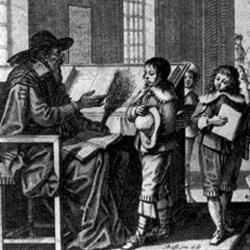
Protestant education from the Reform to the Revolution
From the start of the Reform, great importance was assigned to reading and writing, tools necessary to religious instruction based on reading the Bible.
Associated notes
-
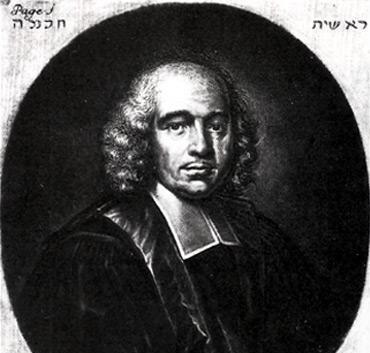
Pierre Jurieu (1637-1713)
Pierre Jurieu was a pastor of the “refuge” and defended the rights of the people in the kingdom of Louis XIV. -
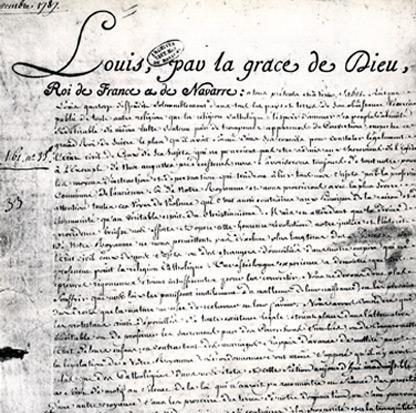
The Edict of Toleration (November 29th, 1787)
With this Edict, King Louis XVI granted the Protestants civil status. He secured their right to live in the kingdom without discrimination for religious reasons. -
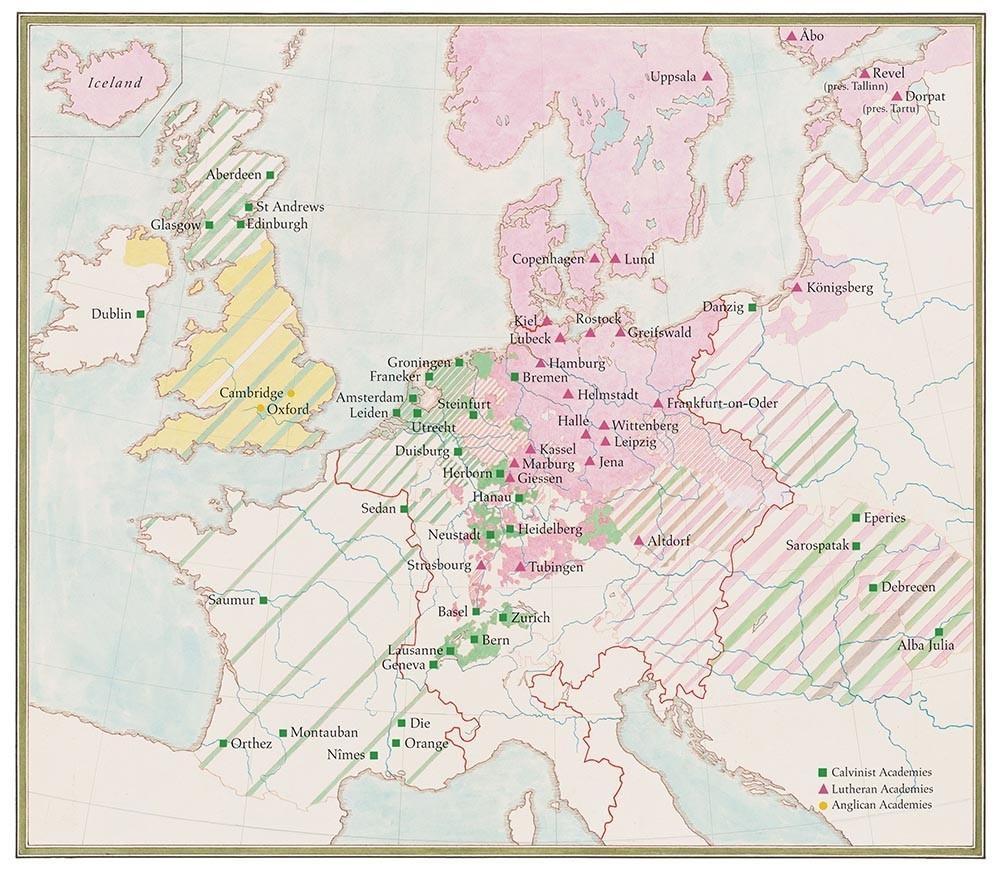
The Reformed Academies in the XVI th and XVIIth centuries
As early as 1565, the synods of the Reformed Churches undertook the training of pastors, encouraging churches to open colleges (a prerequisite for higher education) and universities or “academies” (after... -
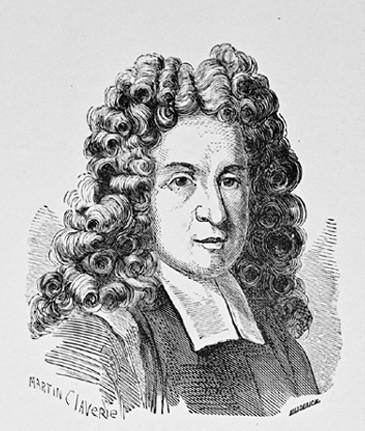
Jacques Saurin (1677-1730)
Jacques Saurin was a pastor serving in the countries of Refuge, first in London, then in the Hague – as a pastor he was admired for his eloquence and a... -
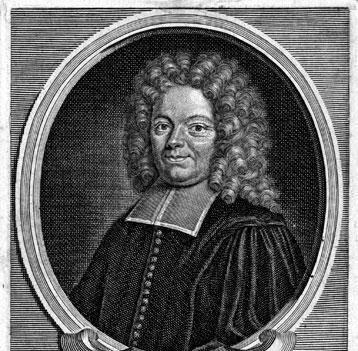
Jacques Basnage (1653-1723)
Jacques Basnage was a pastor in Rouen at the time of the Revocation of the Edict of Nantes – he had to escape from France due to persecution and took...

